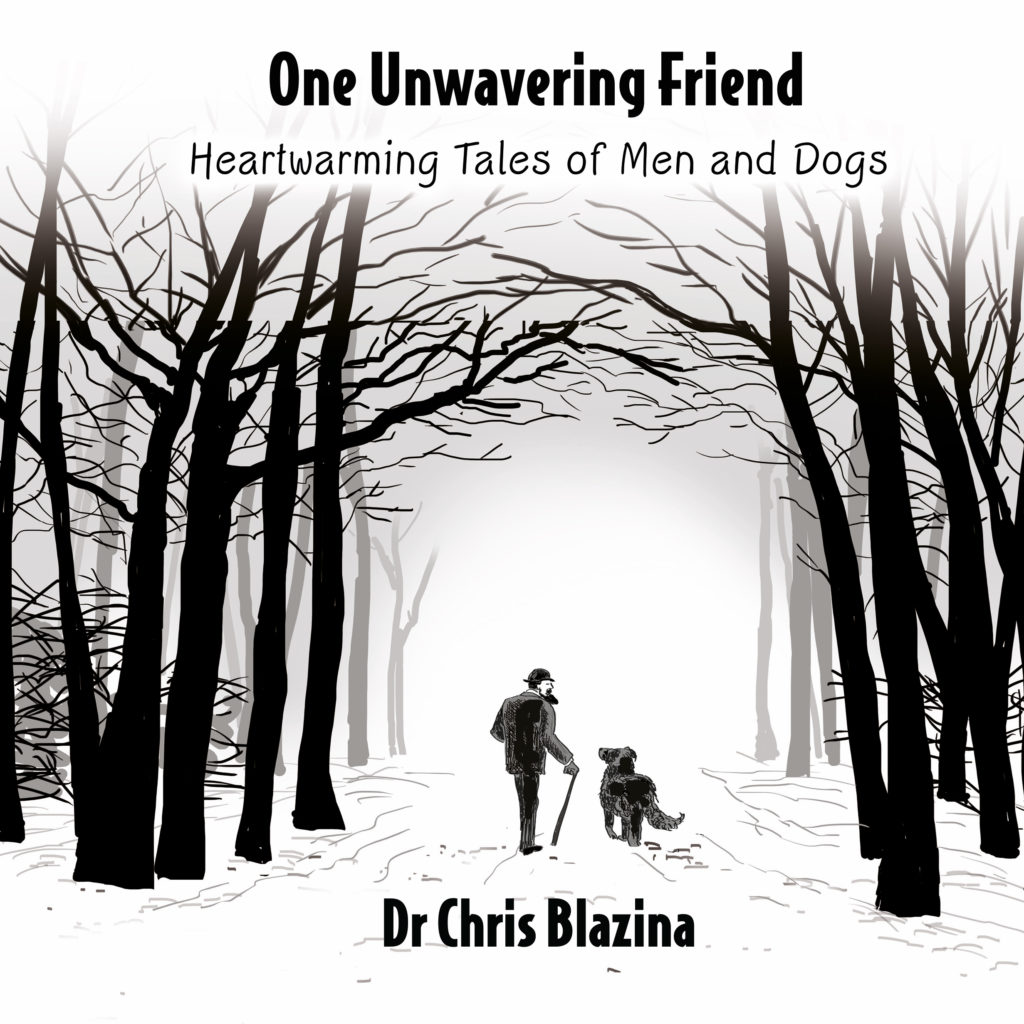
 Dr. Chris Blazina is a licensed psychologist, retired professor, and award-winning author. He has been in practice for over 25 years specializing in working with men. Chris has found the bond with animal companions to be a unique part of men’
Dr. Chris Blazina is a licensed psychologist, retired professor, and award-winning author. He has been in practice for over 25 years specializing in working with men. Chris has found the bond with animal companions to be a unique part of men’
After studying the lives of men who appear in this book, I concluded I was part of a community that I did not know existed. Dickens, Darwin, Byrd, and Freud. All friends that I never knew but nonetheless feel connected to through their love of dogs. It struck me one day that I took a cue from these men. To really understand who they were you must look to their dogs. The bond reveals an aspect of men that was not commonly known or in some cases, purposefully hidden from view. To really see these places where man meets dog offers a fresh perspective, windows into the best parts of who we are.
I think back 50 years ago to when I was 5 years-old. At the time I was somewhat obsessed with drawing dogs driving cars. Recently, I unfolded one of these masterpieces that I had tucked away long ago. On the back of the image was my child-like scrawl explaining the drawing on the other side. The words referred to the canine in the driver’s seat. But what caught my attention was the mention of “Chris Dog” a reference to my own pedigree. By my reckoning, I was part dog. The piece itself was not exactly a foreshadowing of a promising art career. Instead, it spoke to the way I would motor through my life, with a canine companion at my side.
Book Review: “One Unwavering Friend” by Dr. Chris Blazina
Psychobiographies highlight the powerful bond between famous men and their dogs.
Posted December 30, 2021
KEY POINTS
- Many men turn to their dogs for companionship and emotional comfort.
- The stories in the book suggest this is not a new occurrence, but one we discover in historical and psychological contexts.
- We need one steady connection throughout our life. Sometimes it comes in the form of a canine companion.
- Freud, Dickens, Darwin, and many other historical figures have emotionally relied heavily on their relationships with dogs.
I had the honor of speaking with Dr. Chris Blazina about his most recent book, One Unwavering Friend: Heartwarming Tales of Men and Dogs. His book is a fascinating compendium of historical tales, from Odysseus to Freud to Dickens and Darwin, as he describes the deep and lasting bond that often forms between men and their dogs.
Chris Blazina, Ph.D. is a licensed psychologist and retired professor. He currently practices in the Albuquerque, New Mexico, area. His work focuses on the bond between men and their canine companions in research, historical context, and clinical practice. This is his eighth book.
Why did you write One Unwavering Friend?
CB: It seemed like a natural extension of the work I have been doing concerning the special bond between men and their dogs. Embedded within the title is a specific meaning—the hardwiring we have to seek meaningful relational connections throughout our lifetimes, even among those who may have found success in their professional lie as many of the men in the book had. Having one unwavering friend is a psychoanalytic rule of thumb that has heavily influenced my practice as a psychologist. We need one steady connection throughout our life. Sometimes it comes in the form of a canine companion.
The collection of 20 stories concerning thinkers, healers, artists, and underdogs from the past two hundred years or so, all point to the same direction—trying to understand the special place dogs occupied in these men’s life. For instance, Charles Dickens, Charles Darwin, Napoleon, and Freud all have compelling backstories. Ones where dogs occupied a special place and meaning. My task in the book was to uncover as much as I could regarding their life and place the meaning of the human-animal bond squarely in it. Depending upon the source material, we can see some very interesting things. Darwin wrote his book about human and animal emotions with his dog Polly in her basket next to his writing desk. She has a cameo in Darwin’s book, her likeness illustrating dog emotions. This came at a time in Darwin’s life when his theory of evolution was gaining some acceptance and, at a personal level, when some of his early trauma from the loss of his mother seemed to abate. What better way for someone like Darwin to approach uncomfortable emotions than from an intellectual position, with his dog literally by his side.
Dickens also had a special bond with dogs, especially in his turbulent middle age. As his marriage crumbled, walks with his dogs were especially important to him. Dogs become a source of inspiration. He kept little statues of them on his writing desk and carried them in his coat pocket. Dog themes also appear in his writing. Characters could be summed up by the way they treated animals. Dickens even made reference to his own sense of being a stray.
ISBN 978-1-913623-62-3
UJ 15 €18 USA $20
Book categories;
WNGD Dogs as pets
BT – true stories
JFFZ Animals and society
YFP Animal stories